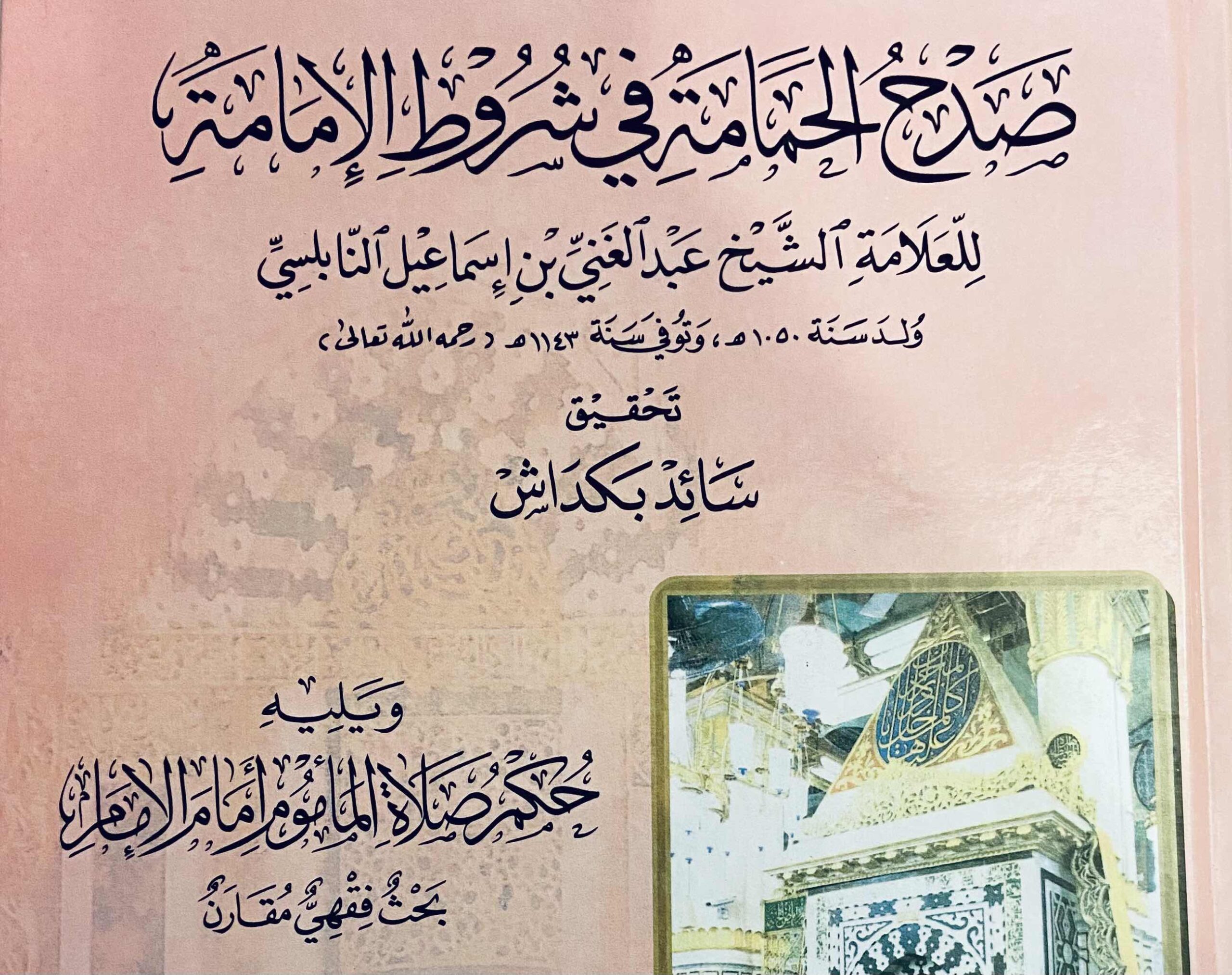Important Conditions for Congregational Imams

The Conditions of Propriety
by Shaykh ‘Abd al-Ghani al-Nabulsi
The Holy Prophet (Allah bless him and give him peace) informed us that the imam is responsible for the prayer of his congregation before Allah Most High (Abu Dawud) — so it behooves us that we choose our leaders with wisdom. The legal basis, then, is that the person of the greatest merit or virtue is most deserving of leading the believers in prayer.
The conditions of, rendered here as, propriety (shurut al-kamal) for the imam of a congregation are listed as follows, as per Shaykh ‘Abd al-Ghani al-Nabulsi’s enumerated list in his Sadh al-Hamama, a useful work in which he gathered masa’il otherwise scattered in various places.
Here, propriety refers to the matters which negate any offensiveness (karaha) in the prayer. This is in distinction to the conditions of validity (shurut al-sihha) which must essentially be present for the congregation to be valid (the list is in his work but omitted here). Of course, there are deeper levels of kamal too, an example of which follows below from Abu’l Layth al-Samaqandi’s Tanbih al-Ghafilin.
Finally, and as always, there are details and nuances in this list which have been left unstated.
Praying behind the following brings about a deficiency in one’s prayer:
1. Slaves
2. Somebody who is blind.
3. Bedouins, as they are normally irreligious and ignorant of the laws of the prayer.
4. Religiously Corrupt, namely, somebody who commits major sins.
5. Innovators*, namely, somebody whose innovation does not remove them from the fold of Islam.
6. Illegitimate Children, as they are normally irreligious and ignorant of the laws of the prayer.
7. Somebody from a different legal school**
8. Somebody who prays a lengthy prayer, namely, that which is beyond the sunna recitation or amount of remembrance.
9. Somebody who prays a rushed prayer, namely, that by which the sunna recitation is left.
10. Somebody who excessively clears their throat, even if it is with an excuse.
11. Somebody who pauses incorrectly during their recitation.
12. Somebody who has a permanent limp.
13. Somebody who is one-handed.
14. Somebody who is missing their private organ, as there may be an issue with his purity.
15. Somebody who has clear and significant skin discolouration, as it may prevent people from praying with him.
16. Somebody who is young and beardless.
17. Somebody who is elderly, assuming that he cannot maintain his state of purity easily.
18. Somebody who sings the Qur’an***
19. A lady leading a congregation of ladies.
20. A naked person leading a congregation of naked people.
* This also includes somebody who wastes water in their wudu, or somebody who has neurotic misgivings (waswasa) in their purification or prayer.
** There is much discussion on this point, but the upshot is that if he fulfils the conditions and obligations, there is no offensiveness in praying behind him.
*** This means that a person recites in a manner by which they contravene the established rules of tajwid in order to produce a beautiful voice or sound.
The List of Proper Manners of an Imam
by Faqih Abu’l Layth al-Samarqandi
1. He is able to recite the Qur’an correctly, without making errors in tajwid.
2. His takbirat should be recited with a sukun on the final letter.
3. He should bow and prostrate fully and completely.
4. He should avoid the unlawful, impermissible and doubtful in his life.
5. He should ensure his clothes and person are ritually pure and properly clean.
6. He should recite a moderate amount and not pray lengthy prayers.
7. He should not be conceited and proud of himself.
8. He should not begin a prayer until he has repented from all of his sins.
9. When he says the final salam, he should intend the congregation, too, thereby.
10. If somebody new prays in his congregation, he should take the time to ask him if he can assist him in any way.
And Allah alone gives success.
Tag:conditions, congregation, imam, mosque, sunna, validity




